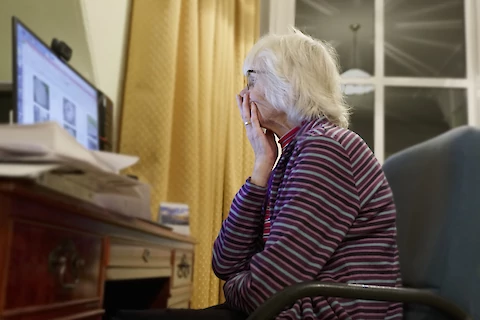
Seniors are more vulnerable to various challenges in life, particularly scams and fraudulent activities. Scammers often target seniors, taking advantage of their trusting nature and sometimes limited knowledge about technology and finances. As an adult child caring for senior relatives, stay informed and vigilant to keep your loved ones safe from these unscrupulous individuals.
Common Scams Targeting Seniors
There are numerous scams specifically aimed at seniors, including Medicare or health insurance fraud, where scammers pose as representatives to obtain personal information. Counterfeit prescription drugs are another issue, with fake drugs being sold online to seniors looking for more affordable medications. Funeral and cemetery scams prey on grieving seniors, while telemarketing or phone scams trick them into giving personal information or money. Internet fraud, investment schemes, homeowner or reverse mortgage scams, sweepstakes, or lottery scams are also far too common.
Recognizing Warning Signs
To protect your senior loved one, you want them to be able to recognize the warning signs of potential scams. These may include unusual or unexplained financial transactions, sudden changes in their wills or power of attorney, the presence of new and unfamiliar "friends," missing personal belongings, and increased fear or anxiety over finances or personal safety. Staying alert to these signs can help prevent your loved one from falling victim to scams.
Educating Seniors About Potential Threats
One of the best ways to protect seniors from scams is to educate them about the risks and common tactics fraudsters use. Discuss common scams with your senior loved ones and explain how they work.
Encourage them to be skeptical of unsolicited offers, particularly over the phone or the internet, and to be cautious when dealing with strangers. It is also essential to teach seniors about the importance of protecting personal information, such as their Social Security number, bank account information, and password security.
Steps Caregivers Should Take if They Suspect a Scam
If you suspect your senior loved one has fallen victim to a scam, taking immediate action is crucial. First, gather evidence by documenting the situation and any information provided by the scammer. Report the scam to local law enforcement, and contact financial institutions to freeze any affected accounts if needed. You must report the scam to the Federal Trade Commission (FTC) and other relevant agencies.
Help your senior loved one recover from the emotional and financial impact of the scam by providing support, guidance, and reassurance. Remember that the recovery process may take time and patience.
Suggestions for Reporting Scams
Several resources are available to report scams and support your senior loved one. Contact the FTC's Consumer Response Center or the Better Business Bureau's Scam Tracker to report the issue. If the scam involves Medicare fraud, reach out to the U.S. Department of Health and Human Services. For internet fraud, contact the FBI's Internet Crime Complaint Center; for mail fraud, contact the U.S. Postal Inspection Service.
Senior Helpers Treasure Coast Stays Alert for Scams
The safety and well-being of your senior loved ones should always be a top priority. By educating yourself about common scams, recognizing warning signs, and taking appropriate action, we can help protect them from fraudsters. If you live in Salerno, Stuart, Palm City, Jensen Beach, Port St. Lucie, Fort Pierce, Vero Beach, or Sebastian, consider reaching out to Senior Helpers Treasure Coast for professional and compassionate caregiving services. Together, we can keep our senior loved ones safe and secure.